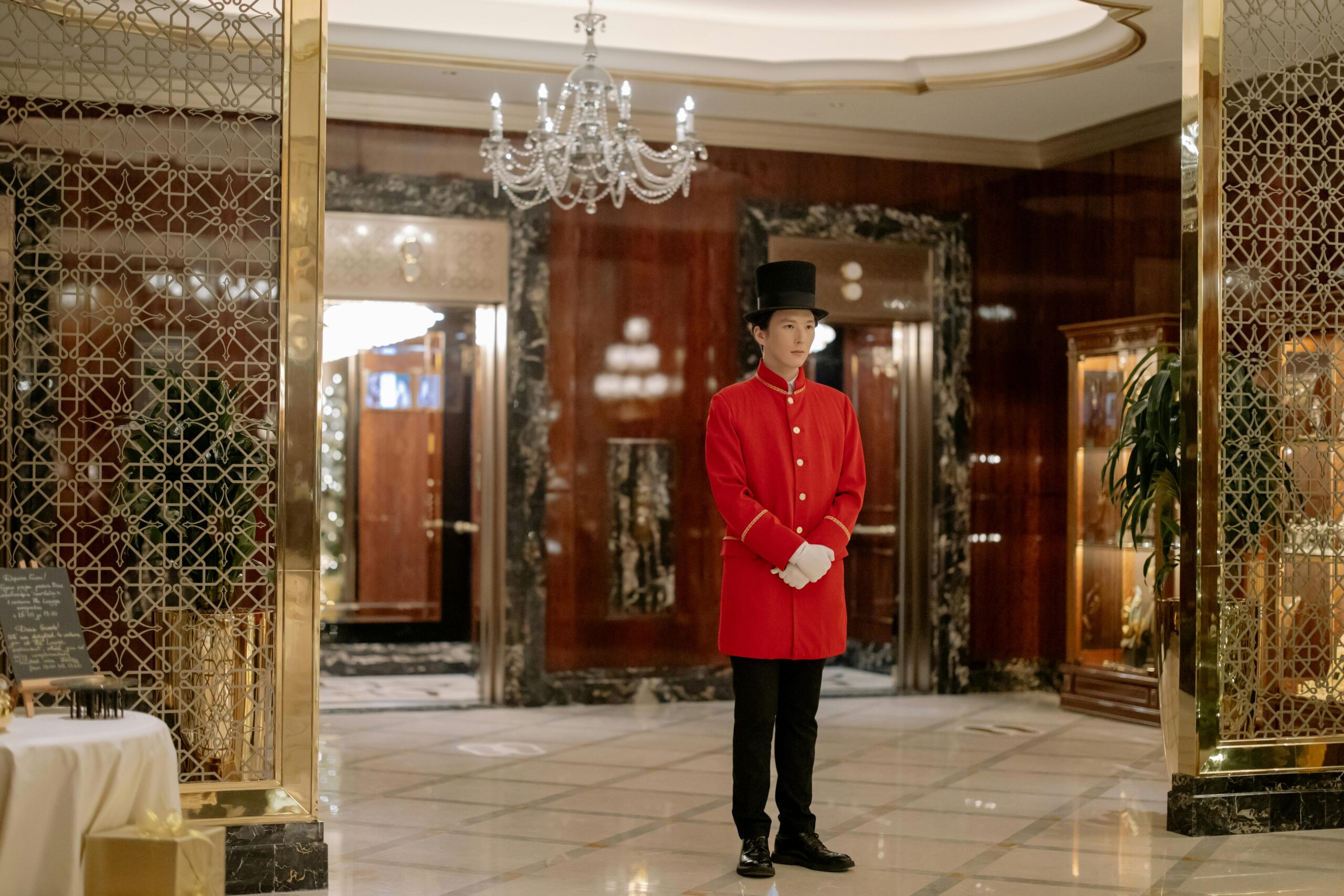Dubai, a vibrant city known for its skyscrapers, luxury, and hub of opportunity, offers a fertile ground for entrepreneurs and investors. With its strategic location, tax incentives, and growing economy, starting a business in Dubai can be a rewarding endeavor.
Here are some top 10 Business Opportunities in Dubai
1. Food and Beverage Business

Growth Potential:
The F&B sector in Dubai is experiencing robust growth. The industry has expanded by 22% over the last five years, with projections indicating continued growth. Events like Dubai Expo 2020 have spurred this growth, and with initiatives like Abu Dhabi’s Vision 2030, the sector is expected to flourish further.
Market Trends:
- The UAE F&B sector is projected to grow to $43.98 billion by 2029, reflecting a compound annual growth rate (CAGR) of 17.09%.
- In 2023, Dubai saw the addition of 6,478 new F&B companies, marking a year-over-year growth of 19.4%.
- Consumer spending on food via e-commerce platforms reached $1.1 billion in 2023 and is expected to increase at a CAGR of 9.5% between 2023 and 2027.
Minimum Investment Requirements:
- The minimum investment to start an F&B business in Dubai varies depending on the jurisdiction (Mainland, Free Zone, or Offshore).
- For the Mainland, the minimum expenditure with visa permits is approximately AED 18,500.
- In Free Zones, the investment starts from around AED 11,900.
Additional Considerations:
- Dubai’s diverse population creates a demand for various cuisines, presenting opportunities for unique dining concepts.
- The city’s status as a tourist destination offers a constant stream of potential customers.
- Dubai’s advanced infrastructure supports the growth and operation of F&B businesses.
Steps to Start an F&B Business in Dubai:
- Business Plan: Develop a comprehensive business plan that includes market research, target audience, and financial projections.
- Licenses and Permits: Obtain the necessary licenses and permits from the Dubai Department of Economic Development (DED) and other relevant authorities.
- Location: Choose a strategic location that aligns with your target market and business model.
- Supply Chain: Establish a reliable supply chain for sourcing ingredients and materials.
- Staffing: Hire qualified staff and ensure they receive proper training to maintain high service standards.
2. Health and Wellness Business

Growth Potential:
Dubai’s Health and Wellness sector is on an upward trajectory, with the city’s commitment to becoming a hub for quality healthcare and wellness services. The industry is part of Dubai Healthcare City, which attracts global and regional businesses, focusing on holistic health and preventative healthcare.
Market Trends:
- The UAE’s health and wellness retail market size are expected to reach approximately USD 2.57 billion by 2025.
- Dubai’s medical tourism sector topped $270 million last year, with fitness poised to become a $600 million market in the UAE by 2025.
- The Wellness Village in Dubai, roughly the size of 16 football pitches, is set to become internationally recognized for healthcare and wellness services.
Minimum Investment Requirements:
- There is no minimum capital requirement for starting a branch of a foreign or UAE company in Dubai Healthcare City (DHCC).
- For a commercial entity, the capital requirement is AED 50K, and for a clinical firm, it’s AED 300K in DHCC.
- Generally, starting a business in Dubai involves an average investment ranging from AED 20,000 to AED 200,000.
Additional Considerations:
- Dubai’s affluent population and increasing health consciousness fuel the demand for high-quality wellness products and services.
- Entrepreneurs can explore opportunities in fitness, nutrition, beauty, mindfulness, medical tourism, and holistic health practices.
- Technology integration, such as wellness apps and wearable devices, can enhance customer experiences and offer a competitive edge.
Steps to Start a Health and Wellness Business:
- Business Plan: Craft a detailed business plan that includes market analysis, target demographics, and financial forecasts.
- Licenses and Permits: Secure the necessary licenses and permits from the Dubai Health Authority and other relevant bodies.
- Location: Select a strategic location that caters to your target audience and business model.
- Partnerships: Collaborate with experienced practitioners and ensure alignment with local regulations for holistic practices.
- Marketing: Develop a strong marketing strategy to promote your health and wellness services.
3. Green Initiatives Business

Growth Potential:
Dubai is actively promoting sustainability and green initiatives, aiming to become a global hub for the green economy. The city’s strategic initiatives like Dubai 10X, Smart Dubai, and Dubai Plan 2021 are driving growth in sectors such as renewable energy, sustainable urban development, and green technology.
Market Trends:
- Dubai’s Green Economy for Sustainable Development initiative seeks to position the UAE as a leader in green technology and sustainable practices.
- The city’s focus on green initiatives is expected to create jobs, increase property values, and boost tourism, contributing to economic prosperity.
- Major initiatives are underway to support the manufacturing sector with industry-friendly energy policies, aligning with Dubai’s sustainability ambitions.
Minimum Investment Requirements:
- While specific figures for green initiatives can vary, generally, starting a business in Dubai involves an average investment ranging from AED 20,000 to AED 200,000.
- For Free Zones, the investment starts from around AED 11,900, and for Offshore, it’s approximately AED 12,500.
- Additional expenditures include application fees and annual license fees.
Additional Considerations:
- Entrepreneurs can explore opportunities in green energy production, sustainable agriculture, and eco-friendly construction.
- The Dubai Green Economy Partnership promotes partnerships between the government, private sector, and international organizations to foster a green economy.
- Aligning with the UAE’s Net Zero by 2050 Strategic Initiative can provide businesses with a competitive edge.
Steps to Start a Green Initiatives Business:
- Business Plan: Develop a business plan focusing on sustainability and environmental impact.
- Licenses and Permits: Obtain the necessary licenses from the Dubai Department of Economic Development and other relevant authorities.
- Location: Choose a location that supports green businesses, such as Dubai Sustainable City.
- Funding: Explore green financing options available through UAE banks and investors.
- Partnerships: Engage with local and international partners to leverage expertise and resources.
4. Consultancy Services Business

Growth Potential:
Dubai’s consultancy market is thriving, thanks to economic diversification, innovation, and investment in sectors like technology, finance, real estate, and sustainability. The success of Expo 2020 Dubai and other major projects have created a lucrative field with great investment potential, especially for consultancy services in finance, technology, and marketing.
Market Trends:
- The GCC consulting market saw a 9% growth last year, surpassing the USD 3 billion mark, with the UAE being the second-largest market at USD 850 million.
- Dubai’s demand for consultancy services is increasing, offering entrepreneurs a rewarding venture as they provide valuable insights to businesses navigating the competitive market.
Minimum Investment Requirements:
- The minimum investment to start a consultancy business in Dubai can vary. For a services company, it starts at approximately AED 25,000 for mainland setups.
- In Free Zones, the investment starts from around AED 11,900, and for Offshore, it’s approximately AED 12,500.
- Additional costs include application fees and annual license fees, which can be around AED 12,900.
Additional Considerations:
- Dubai offers a business-friendly environment with cooperative legal regulations, making it easier for entrepreneurs to launch their consultancy services.
- The city’s robust economy and exceptional transport and logistics infrastructure support the growth of consultancy businesses.
Steps to Start a Consultancy Services Business:
- Business Plan: Develop a detailed business plan that includes market analysis, target demographics, and financial forecasts.
- Licenses and Permits: Obtain the necessary licenses from the Dubai Department of Economic Development and other relevant authorities.
- Location: Select a strategic location that caters to your target audience and business model.
- Marketing: Implement a strong marketing strategy to promote your consultancy services.
- Networking: Build a network of contacts and potential clients to grow your consultancy business.
5. Luxury Services Business

Growth Potential:
Dubai’s luxury market has shown strong growth, with a forecasted compound annual growth rate (CAGR) of 8.5% during 2021-2026. The city’s love for luxury vehicles and a thriving automotive market present various business opportunities.
Market Trends:
- The UAE luxury market saw significant growth from 2015-2020, with wealthy residents and tourists driving demand for high-end goods and services.
- The emergence of e-commerce has provided easy access to luxury goods, further contributing to market growth.
Minimum Investment Requirements:
- The minimum investment for starting a luxury services business in Dubai can range from AED 50,000 to AED 100,000, depending on the scale and type of services.
- For service-based companies, the minimum investment can be around AED 18,500, which is modest compared to other global business capitals.
Additional Considerations:
- Dubai’s strategic location and tax benefits make it an attractive destination for luxury businesses.
- The city’s stable economy and world-class infrastructure enhance the efficiency of business operations.
Steps to Start a Luxury Services Business:
- Business Plan: Create a detailed business plan that includes market analysis, target demographics, and financial forecasts.
- Licenses and Permits: Obtain the necessary licenses from the Dubai Department of Economic Development and other relevant authorities.
- Location: Choose a prime location that aligns with your target market and business model.
- Marketing: Develop a strong marketing strategy to promote your luxury services.
- Networking: Build a network of contacts and potential clients to grow your luxury services business.
6. Tourism Agency Business in Dubai
Growth Potential:
- Dubai’s tourism sector is set to be a major contributor to the Dubai Economic Agenda D33’s goal of doubling the city’s economy in the next 10 years.
- The emirate welcomed 17.15 million overnight visitors in 2023, a 19% increase compared to 2022.
- Dubai aims to attract AED 100 billion in additional tourism investments and receive 40 million hotel guests by 2031.
Market Trends:
- The tourism industry contributed $29.4 billion to Dubai’s economy in 2022.
- New visa categories like the Golden Visa and Entrepreneur Visa are enhancing Dubai’s appeal as a business and leisure destination.
Minimum Investment Requirements:
- The cost of obtaining a tourism business license in Dubai generally starts from AED 14,900.
- Establishing a business in a Free Zone requires an investment of around AED 12,900, while Offshore businesses require approximately AED 12,500.
- The minimum investment in the tourism sector could range from AED 50,000 to AED 100,000, depending on the scale and type of services one chooses to deliver.
Additional Considerations:
- Dubai’s strategic location, world-class infrastructure, and tax-free incentives make it an attractive destination for tourism businesses.
- The city’s diverse population and global connectivity offer a steady stream of tourists year-round.
Steps to Start a Tourism Agency:
- Business Plan: Create a comprehensive business plan that includes market analysis, target demographics, and financial forecasts.
- Licenses and Permits: Obtain the necessary licenses from the Dubai Department of Economy and Tourism.
- Location: Choose a prime location that aligns with your target market and business model.
- Marketing: Develop a strong marketing strategy to promote your tourism services.
- Networking: Build a network of contacts and potential clients to grow your tourism agency.
7. Logistics Business
Growth Potential:
- The UAE logistics market is expected to grow at a CAGR of 5.58% during 2024-2032.
- Dubai’s logistics industry contributes approximately 14% to the UAE’s GDP, highlighting its importance to the economy.
- The sector is characterized by its innovative approach and modern infrastructure, including world-class ports and airports.
Market Trends:
- The UAE is strategically positioned as a crucial game-changer in the logistics industry, with significant investments in infrastructure such as the USD 3.5 billion Al Mafraq-Al Ghuwaifat road upgrade.
- The presence of major logistics players like Deutsche Post DHL Group and Agility Logistics adds to a competitive landscape.
Minimum Investment Requirements:
- While there is no minimum capital requirement for starting a logistics company in Dubai, the investment can vary based on the scale and type of operations.
- An establishment in a Free Zone without an immigration quota requires an investment of AED 12,900, whereas any Offshore business will require roughly AED 12,500.
- Additional costs include application fees and annual license fees.
Additional Considerations:
- Dubai’s geographical location and infrastructure make it an ideal gateway for supply and distribution.
- The logistics sector is highly competitive, requiring a good capital investment to gain a strong foothold in the market.
Steps to Start a Logistics Business:
- Business Plan: Develop a comprehensive business plan that includes market analysis, target demographics, and financial forecasts.
- Licenses and Permits: Obtain the necessary licenses from the Dubai Department of Economic Development and other relevant authorities.
- Location: Choose a strategic location that aligns with your target market and business model.
- Infrastructure: Invest in or partner with facilities that offer state-of-the-art warehouses and distribution services.
- Networking: Build a network of contacts and potential clients to grow your logistics business.
8. Real Estate Business
Growth Potential:
- Dubai’s real estate market has shown robust performance across all sectors, fueled by its status as a safe haven for global investment.
- The city’s population crossed 3.6 million as of June 2023, with a 1.4% year-to-date increase, indicating a growing demand for real estate.
- Tourist arrivals increased by 19.9% from January to November 2023, reaching 15.4 million tourists, further driving the real estate market.
Market Trends:
- The real estate sector experienced impressive growth, with average prices soaring by 16.9% in 2023.
- Apartment prices increased by 17.2%, while villa prices rose by 15.1%, highlighting the city’s charm for real estate investors.
- Residential rents also saw remarkable growth, with an average increase of 22.8%.
Minimum Investment Requirements:
- The estimated budget for starting a real estate business in Dubai is approximately over AED 27,000, which is the cost of the license voucher.
- Additional costs include application fees, annual license fees, and other operational expenses.
- For a more significant investment, options like property purchase start at 1 million AED, and business creation can require a minimum capital of 500,000 AED.
Additional Considerations:
- Dubai’s tax-friendly environment is a powerful magnet for investors, offering a landscape for financial prosperity within the real estate sector.
- The absence of personal income tax, capital gains tax, and corporate tax fosters an environment where businesses can thrive.
Steps to Start a Real Estate Business:
- Business Plan: Develop a comprehensive business plan that includes market analysis, target demographics, and financial projections.
- Licenses and Permits: Obtain the necessary licenses from the Dubai Department of Economic Development and the Real Estate Regulatory Agency (RERA).
- Location: Choose a strategic location that aligns with your target market and business model.
- Marketing: Implement a strong marketing strategy to promote your real estate services.
- Networking: Build a network of contacts and potential clients to grow your real estate business.
9. IT Solutions Business
Growth Potential:
- Dubai is rapidly advancing as a global hub for technology and innovation, with IT solutions playing a pivotal role in its growth.
- The city’s digital transformation has escalated the demand for IT services across various sectors, including healthcare, banking, retail, and education.
Market Trends:
- Dubai Internet City (DIC) is the region’s hub for innovation and technology, home to Fortune 500 companies and a wide range of IT services companies.
- The IT sector is bustling with opportunities for IoT integration, data analytics, AI solutions, cloud computing services, and cybersecurity solutions.
Minimum Investment Requirements:
- The minimum investment for starting an IT solutions business in Dubai could range from AED 50,000 to AED 100,000, depending on the scale and type of services.
- Dubai offers several free zones that cater to technology businesses, providing significant benefits such as 100% ownership, tax exemptions, and easy company setup procedures.
Additional Considerations:
- Dubai’s strategic location, liberal taxes, business-friendly policies, and access to global talent make it an ideal place to set up an IT business.
- The city provides state-of-the-art infrastructure and world-class economic zones to support the growth of technology businesses.
Steps to Start an IT Solutions Business:
- Business Plan: Develop a detailed business plan that includes market analysis, target demographics, and financial forecasts.
- Licenses and Permits: Obtain the necessary licenses from the Dubai Department of Economic Development and other relevant authorities.
- Location: Choose a strategic location within tech hubs like Dubai Internet City.
- Infrastructure: Invest in high-speed internet connectivity and modern facilities.
- Networking: Build a network of contacts and potential clients to grow your IT solutions business.
10. E-commerce Business
Growth Potential:
- The UAE e-commerce market was valued at USD 8.56 billion the previous year and is set to reach USD 16.53 billion over the forecast period, registering a CAGR of 11.52%.
- Dubai’s strategic geographical position and its state-of-the-art logistics infrastructure make it an ideal hub for cross-border e-commerce activities.
Market Trends:
- Mobile commerce is expected to dominate, with over 50% of e-commerce transactions in Dubai projected to occur through mobile devices.
- Social commerce platforms like Instagram, Facebook, and TikTok are evolving into vital e-commerce channels, driving sales and brand loyalty.
Minimum Investment Requirements:
- E-commerce setup costs range from AED 10,000 to AED 30,000.
- A Free Zone company can start with a minimum investment of AED 5,500, which will increase if a visa and office space are required.
Additional Considerations:
- The UAE government’s push towards a digital economy is revolutionizing payment systems, allowing businesses to offer a variety of payment options.
- Personalization is revolutionizing the e-commerce experience, with businesses utilizing AI and machine learning to tailor shopping experiences.
Steps to Start an E-commerce Business:
- Market Research: Identify trends and customer needs to choose a suitable business model.
- Location Selection: Decide between a free zone or mainland area, each offering different benefits.
- Trade Name Registration: Legally register your company’s name with the Economic Department.
- E-commerce License: Apply for an e-commerce license from the Department of Economic Development.
- Website Development: Build a user-friendly website with secure payment options.
- Payment System Integration: Set up a payment gateway by obtaining a merchant account from a local bank or payment provider.
- Support and Logistics: Offer customer assistance and manage logistics, either in-house or through third-party services.
Disclaimer:
The information provided in this blog post is for general informational purposes only. While we strive to keep the information up-to-date and correct, we make no representations or warranties of any kind, express or implied, about the completeness, accuracy, reliability, suitability, or availability with respect to the blog or the information, products, services, or related graphics contained on the blog for any purpose. Any reliance you place on such information is therefore strictly at your own risk.
In no event will we be liable for any loss or damage including without limitation, indirect or consequential loss or damage, or any loss or damage whatsoever arising from loss of data or profits arising out of, or in connection with, the use of this blog.
Please note that the business landscape in Dubai is subject to changes due to economic, regulatory, and market factors. It is advisable to conduct your own research and consult with professional advisors before making any business decisions.
